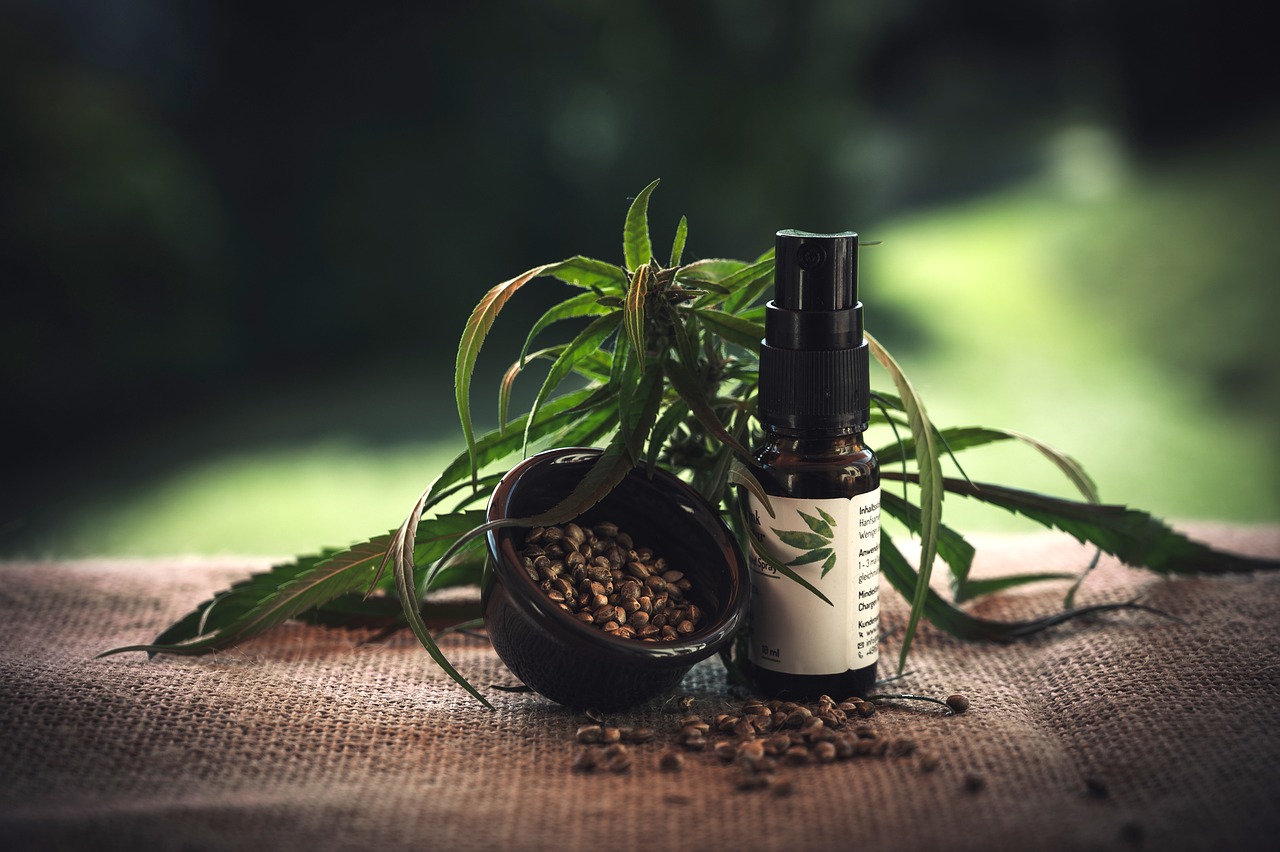Psychedelic Microdosing Research: Everything You Need to Know
Ever wonder if psychedelic microdosing research can actually make a difference in your mental health or productivity?
Maybe you’ve heard friends talk about microdosing LSD or psilocybin and you’re curious but unsure if it’s safe or effective.
Well, you’re not alone.
People are asking these questions all the time: Does psychedelic microdosing help with anxiety? Can it boost creativity? Is there real science behind it, or is this just hype?
Key Takeaways
- Microdosing involves taking low doses of LSD or other psychedelics.
- Microdosing studies explore its effects on mental health concerns, such as anxiety and depression.
- Ongoing research suggests microdosing may offer benefits for both mental and physical health.
- The popularity of microdosing has increased, with self-reported positive effects from users.
- Controlled studies are essential to understanding the true potential and effectiveness of microdosing for health-related issues.
- Current research focuses on the self-rated effectiveness of microdosing for mental and physical well-being.
- There is a need for more systematic research to validate anecdotal benefits and address health concerns.
Let’s break it down, starting with what the research is saying, how it works, and what we know so far.
What Is Psychedelic Microdosing?
Before we get into the research, let’s talk about the basics.
Microdosing psychedelics is the practice of taking very small doses of substances like LSD or psilocybin (the active compound in magic mushrooms) to experience subtle effects.
The key? You’re not looking to trip. Instead, people report improved focus, creativity, and mental clarity—without the full-blown psychedelic experience.
This isn’t just a new trend. It goes way back. Researchers like James Fadiman have been studying it for years.
And while it might seem fringe, Johns Hopkins University and Imperial College London are diving deep into the science behind microdosing psychedelics for mental health benefits.
The goal? To find out if these substances can be used as legit tools to improve well-being.
A Quick History on Psychedelic Research
Psychedelics like LSD and psilocybin were first studied seriously in the 1950s and ’60s. Scientists wanted to know if they could help with mental health disorders like depression and anxiety.
Then, things changed.
In the late ’60s, psychedelics were banned. Research halted for decades. But now, there’s a comeback—especially when it comes to microdosing.
Thanks to pioneers like Robin Carhart-Harris and Paul Stamets, we’re seeing a resurgence in the study of psychedelics, especially for their potential to improve cognition, creativity, and emotional resilience.
How Does Psychedelic Microdosing Work?
The big question: How does it actually work?
When you microdose, you’re taking about 1/10th to 1/20th of a regular dose of a psychedelic like LSD or psilocybin. It’s too small to cause hallucinations, but just enough to stimulate brain activity in ways that could help with things like creativity, mood, or even focus.
Here’s a breakdown of what’s happening in your brain:
- Serotonin Activation: Psychedelics act on the brain’s serotonin receptors. This is the same system that’s targeted by common antidepressants like SSRIs.
- Neuroplasticity Boost: Studies suggest that microdosing could help promote neuroplasticity, which means your brain might become more adaptable and flexible in its thinking patterns. This is huge for mental health, creativity, and learning.
- Minimal Side Effects: The beauty of microdosing is that you’re avoiding the intense hallucinations or altered reality that comes with a full dose. Most people report feeling “normal,” just with a boost in energy, mood, or cognition.
Typical Microdosing Protocols
The most common protocols come from the work of James Fadiman. He recommends dosing every 3 to 4 days, which gives you time to feel the subtle effects while avoiding any buildup of tolerance.
Other people follow a “”one week on, one week off”” approach.
You can use psychedelics like psilocybin or LSD, but it’s all about consistency.
Most microdosing involves very small amounts: around 10-20 micrograms of LSD, or 0.1 to 0.3 grams of psilocybin mushrooms.
Each person reacts differently, so you have to figure out what works for you.
Psychedelic Microdosing Research: Mental Health, Legal Concerns, and the Future
Ever wondered what psychedelic microdosing research says about its effects on mental health?
You’ve probably heard about people using microdoses of LSD or psilocybin to treat anxiety or depression. But what’s the actual impact? And what’s the catch with legal concerns?
Let’s dive into what we know about the mental health side of microdosing, the legal and ethical debates, and where this field is headed.
Mental Health Implications of Microdosing Psychedelics
So, is microdosing just hype, or is there real mental health potential here?
More and more studies are suggesting that psychedelic microdosing could have real benefits for mental health. We’re talking depression, anxiety, and even PTSD.
Here’s how microdosing psychedelics like psilocybin and LSD might help:
- Mood Improvement: People who microdose often report a boost in their overall mood. Researchers, like those from Johns Hopkins University, are finding early evidence that microdosing might help alleviate symptoms of depression and anxiety.
- Stress Reduction: Microdosing psychedelics can activate parts of the brain involved in stress response, like the serotonin receptors. This is why you’ll hear people say they feel more relaxed or calm after a microdose.
- Emotional Resilience: Some studies suggest microdosing could improve emotional resilience, making it easier to bounce back from stressful situations. This ties into the way psychedelics influence neuroplasticity, or your brain’s ability to adapt and reorganize.
Traditional Therapies vs. Microdosing
How does microdosing stack up against more traditional mental health treatments?
Here’s the deal:
- SSRIs (selective serotonin reuptake inhibitors) are commonly prescribed for depression. They’re effective for some, but the side effects can be brutal—weight gain, sleep problems, sexual dysfunction.
- Microdosing offers a potential alternative. While still early in research, it might come without those heavy side effects, and some people even report increased creativity and focus—things you definitely don’t get from an SSRI.
- But, it’s important to note that psychedelic microdosing research is still in its early stages. You won’t find the same level of clinical trial data that you see with pharmaceuticals. But places like Imperial College London and MAPS are working to change that.
Legal and Ethical Considerations Surrounding Psychedelic Microdosing
Here’s where things get tricky: psychedelics are still illegal in a lot of places.
So even if you’re intrigued by microdosing, the legal landscape might give you pause. Let’s break it down:
Legal Status of Psychedelics Worldwide
In most countries, substances like LSD, psilocybin, and DMT are classified as Schedule I drugs. That means they’re seen as having no medical benefit and a high potential for abuse—though current research is challenging that view.
But things are shifting. Fast.
- Oregon became the first state to decriminalize psilocybin, and other states like California are considering similar moves.
- Canada is also getting in on the action, with medical exemptions granted for psilocybin therapy in some cases.
- In Europe, places like the Netherlands have always been more lenient, allowing the sale of psilocybin truffles for personal use.
Ethical Debates: Safety, Accessibility, and Regulation
Now let’s talk ethics. Even if microdosing becomes legal, should it be accessible to everyone?
Here are a few things to think about:
- Safety Concerns: We need more data on the long-term effects of microdosing. While many report no significant side effects, there’s still a lot we don’t know. Could regular microdosing affect heart health, cognition, or emotional stability over time?
- Regulation: If microdosing becomes widely accepted, who regulates it? Will we see pharmaceutical-grade psilocybin in pharmacies, or will it remain in a grey market with little oversight?
- Accessibility: As psychedelics become more mainstream, there’s a real concern about gatekeeping. Will only wealthy people have access to safe, regulated psychedelic products, or will they be available to everyone?
The Future of Psychedelic Microdosing: Trends, Innovations, and Potential Challenges
The future of psychedelic microdosing research is looking bright—and complicated.
Here’s what you need to keep an eye on:
Emerging Trends in Microdosing Research
AI-driven studies are already making waves in how we understand the impact of psychedelics. Companies are starting to use machine learning to predict how different dosages affect the brain. This could lead to personalized microdosing protocols, where you get a tailor-made schedule based on your specific brain chemistry and needs.
Another huge trend is the use of wearable tech to track how microdosing affects cognitive performance. Imagine being able to see, in real-time, how your focus, creativity, or stress levels shift with each dose.
Innovations in Psychedelic Products
We’re also seeing a rise in microdose products designed for specific outcomes. Companies like MindMed and Compass Pathways are developing psilocybin capsules tailored for everything from creativity to anxiety relief.
You’ll also start seeing more functional foods—think chocolates or gummies infused with psychedelics, dosed just right for microdosing. These are aimed at making the experience easy and consistent for users.
Challenges: Stigma, Legal Hurdles, and Healthcare Integration
Let’s be real. There are still some big challenges ahead for psychedelic microdosing to hit mainstream acceptance.
- Stigma: Despite all the science, there’s still a heavy stigma around psychedelics. Many people associate them with the counterculture movement of the ’60s, and this negative perception can slow down legal and medical acceptance.
- Legal Hurdles: While places like Oregon and the Netherlands are leading the charge in psychedelic decriminalization, it’s going to take years for more conservative places to catch up. The pharmaceutical industry might also push back against psychedelics, especially if they pose a threat to the traditional treatment models.
- Integration into Healthcare: Even if psychedelics become legal, integrating them into traditional healthcare will be another challenge. Psychiatrists, doctors, and even insurance companies need to get on board. Plus, it requires careful regulation to ensure safety and accessibility.
Psychedelic microdosing research is opening new doors in mental health and wellness. As the science continues to evolve, the possibilities seem endless—from personalized medicine to innovative products. But with the legal and ethical hurdles, it’s going to be a while before we see full integration into traditional healthcare.
FAQ
Q: What is microdosing?
Microdosing is the practice of taking very low doses of psychedelic substances, such as LSD or psilocybin, to potentially enhance mood, focus, and creativity without experiencing full hallucinogenic effects. These sub-perceptual doses aim to improve cognitive and emotional functioning.
Q: How does microdosing with psychedelics work?
Microdosing typically involves consuming about 1/10th to 1/20th of a recreational dose of a psychedelic, such as 10-20 micrograms of LSD. Users report subtle improvements in mood and productivity, without the intense hallucinations or cognitive distortions associated with higher doses.
Q: What are the potential benefits and challenges of microdosing psychedelics?
The benefits may include better mood, creativity, focus, and relief from conditions like depression and anxiety. However, challenges include the lack of standardized dosing, potential legal issues, and the need for more rigorous research to understand the long-term effects.
Q: Can microdosing help with depression and anxiety?
Preliminary research and anecdotal evidence suggest that microdosing may help alleviate depression and anxiety. However, large-scale, controlled studies are needed to validate its effectiveness and ensure its safety for these mental health conditions.
Q: What does current research say about microdosing psychedelics?
Although research on microdosing is still in its early stages, small studies have shown promising results. However, systematic reviews and controlled trials are necessary to fully understand the true potential of microdosing for both mental and physical health benefits.



